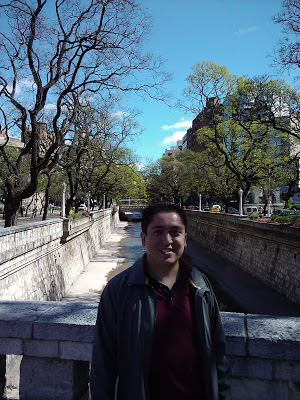My husband and I have experienced the move very differently. While he’s embraced Argentina—its customs, food, and language—I’ve found myself resisting the transition at nearly every step. He believes my struggle to adapt comes from my unwillingness to let go of the U.S., and he’s probably right. Emotionally, I still feel tethered to my home country. Even now, I find myself constantly comparing the two cultures—and I suspect the locals don’t appreciate that much.
I also continue to speak English in public, even though I promised myself (and my husband) that I’d start speaking Castilian (Argentine Spanish). I know it’s time to try harder.
You might be wondering: If I’m this unhappy, why don’t I just go back?
It’s not that simple. Moving here required me to burn some bridges—bridges I can’t cross again. Ironically, my husband has no desire to return. He wanted a fresh start, far from the pain of his past in the U.S. He has a complicated family history—that’s his story to tell—but here, he’s finally at peace. He has the kitchen he’s always dreamed of, with no one telling him what to do. He’s a cook at heart, and I’m happy to see him doing what he loves. Baking brings him joy, and I’m working on helping him realize his goal of opening a pastry shop within the next five years.
My family has embraced him fully. My parents call him “son,” and my cousins call him primo (Spanish for “cousin”). In many ways, he’s regained the grandparents he lost to cancer a few years ago—my parents have become that for him. I’m truly grateful for how loving and supportive they’ve been. I just hope that never changes.
Part of the reason I’ve struggled here is the lack of demand for English speakers. My high school and college credits from the U.S. don’t carry much weight here, so I’m essentially starting over. Fortunately, I’ve been told that Argentine universities are some of the best in the world—and they’re free. I’m counting on that. I’ll be going back to school and learning about Argentina’s history in the process. I’ve set both educational and career goals for myself, which I’ll share in a future blog post.
I haven’t given up on my writing either. Promoting my books from Argentina is nearly impossible, and the recognition I once hoped to achieve in the U.S. never materialized. But now I’m translating my books into Castilian. There seems to be a greater demand here for fresh voices and new ideas, so I’m optimistic about finding success as an author in Argentina.
By the end of my first year, I hope to finish translating Hunter’s Vendetta, and maybe even pick up a few more students to teach English to.





No comments:
Post a Comment